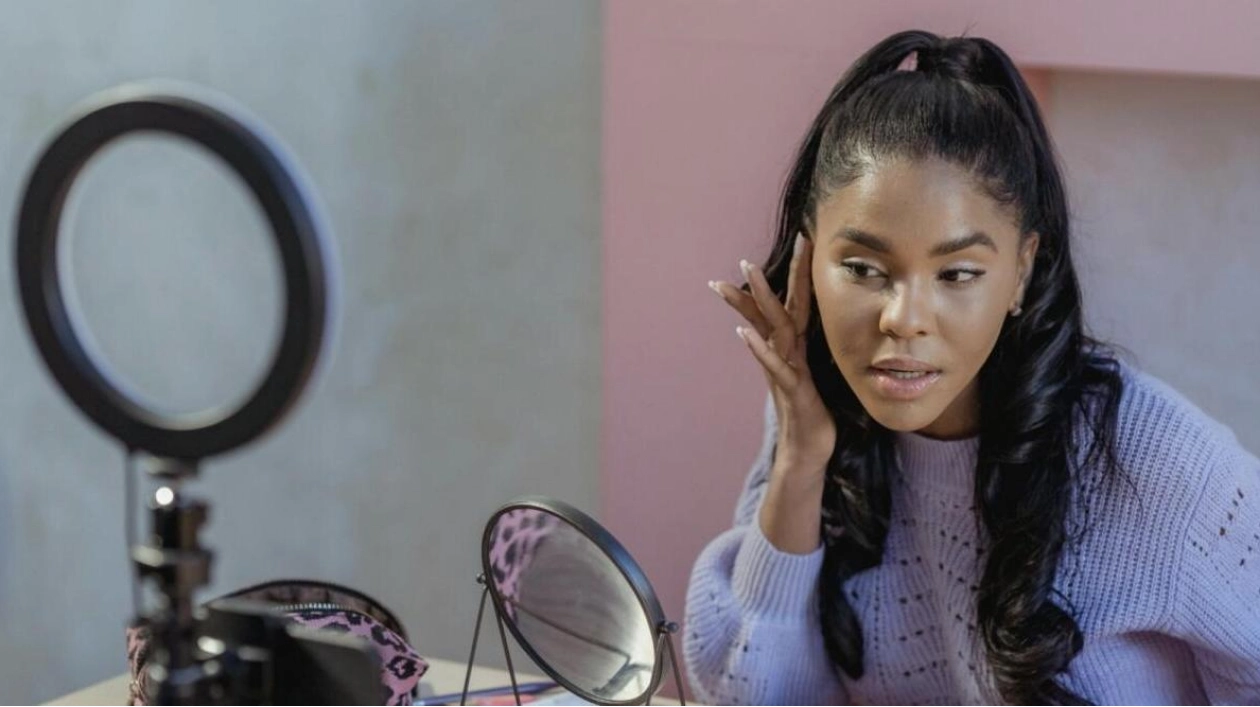In today’s digital era, social media has profoundly impacted skincare practices. It has not only transformed how people approach skincare but also how they perceive haircare and beauty. Platforms like Instagram, TikTok, and YouTube have become virtual centers where skin consultants, influencers, and ordinary users share their skincare routines, product recommendations, and personal experiences. This accessibility has empowered many to try new products and routines, but it has also raised concerns about misinformation and health risks.
Dr. Mayur Bhobe, a specialist dermatologist at CosmeSurge Hospital in Dubai, warns that many social media influencers lack formal training in skincare. Their advice, often based on personal experiences, may not be universally applicable. Dr. Bhobe also highlights the limited understanding of skincare ingredients among influencers, which can lead to misinformation about product safety and efficacy.
Dr. Mawada El Magboul, a specialist dermatologist at Burjeel Hospital in Dubai, emphasizes the importance of individualized care in dermatology. She notes that self-diagnosis based on online information can complicate dermatological treatment efforts and potentially worsen conditions. Both doctors stress that what works for one person may not work for another due to the unique nature of each individual’s skin.
Social media has also influenced perceptions of what constitutes good skin, as evidenced by personal experiences shared by individuals like the 32-year-old doctor and 24-year-old Egyptian expat Lojain Yasser Mahdy. Despite the risks, social media has brought valuable insights into maintaining healthy skin, hair, and nutrition.
Nipun Kapur Sohal, a digital creator and certified skincare consultant in Dubai, distinguishes between skincare consultants and dermatologists. She notes that most skincare products are non-prescription, making them accessible without a dermatologist’s consultation. However, she also points out the downside of social media, where consumers often believe there is an over-the-counter cure for every skin ailment.
Social media has significantly influenced consumer behavior and skincare trends. A survey by the National Library of Medicine in 2023 found that 20.1 percent of women in Saudi Arabia get skincare product information from social media influencers. The accessibility of diverse skincare information and product reviews on social media promotes inclusivity and expands options beyond traditional retail offerings.
While social media empowers users to take control of their skincare routines, it also spreads misinformation. A study published in the Journal of Clinical and Aesthetic Dermatology in 2022 found that 55 percent of Instagram posts related to skincare contained misleading or inaccurate information. Dr. Mayur Bhobe highlights specific concerns about common skincare practices, such as the misuse of essential oils, lemon juice, coconut oil, and high concentrations of benzoyl peroxide or salicylic acid.
Self-diagnosis based on social media advice can delay proper medical treatment for serious skin conditions. Dr. Bhobe shares a case where a patient self-diagnosed a rash as eczema and used over-the-counter hydrocortisone cream, which worsened the condition. Commercial bias in sponsored content and endorsements also raises concerns about biased reviews.
To navigate the complexities of online skincare advice responsibly, experts recommend a balanced approach that integrates insights from social media influencers with professional guidance from dermatologists. Skincare consultant Nipun Kapur advises researching ingredients thoroughly and considering various perspectives before making a decision. In conclusion, integrating social media into skincare routines reflects a cultural shift toward empowerment and self-expression, but it’s essential to approach online recommendations with caution.






